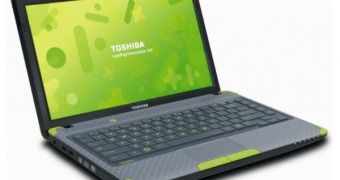As one would have expected, the flaw found by Intel in its 6-series Cougar point chipset has turned out to have had far-reaching consequences, and it seems NEC, HP and Toshiba are now dealing with their own share of complications, the same way their peers and rivals have to.
Not too long ago, Intel issued a press release in which it revealed the existence of a design flaw in its new chipsets (6 series), dealing with SATA port degradation.
Already the likes of Puget, Micro-Star Internatonal and Gigabyte, among others, have taken measures to counteract the effect of this development.
Of course, this goes for all those that have or were planning on launching machines based on the aforementioned chipset.
Apparently, HP, NEC and Toshiba have now made a stand of their own, though the last of the three seems to have more work that the other two.
HP was going to soon start selling business notebooks, but will reportedly delay the official launch until February 10.
“We are postponing the business notebooks briefing on Feb. 10 as the availability of HP products will be impacted” says a statement reportedly published by Edelman Public Relations Worldwide.
NEC also intends to delay the release of four new models, while Samsung is going to recall a number of mobile computers of its own.
For those that need more specifics about the problem itself, the 6 Series Cougar Point chipset can cause SATA 3.0 Gbps ports to degrade over time.
Among Toshiba's laptops that are subject to this issue are Satellite, Portege and Qosmio series models (the Satellite line seems to include most of the faulty machines).
Basically, any customer that bought one of the products included in the list posted on Toshiba's official website will be able to return it for a full refund. The list in question can be found here.

 14 DAY TRIAL //
14 DAY TRIAL //